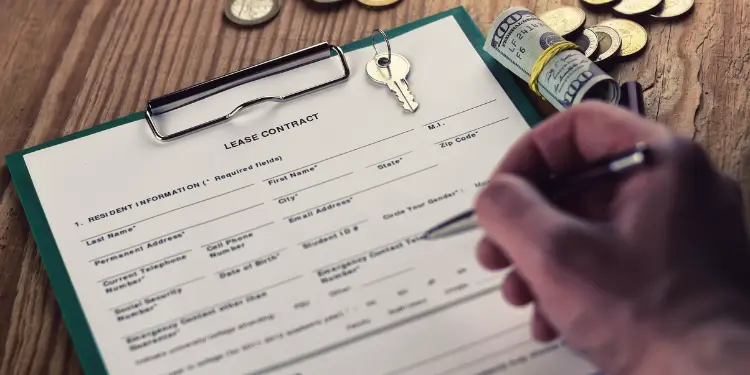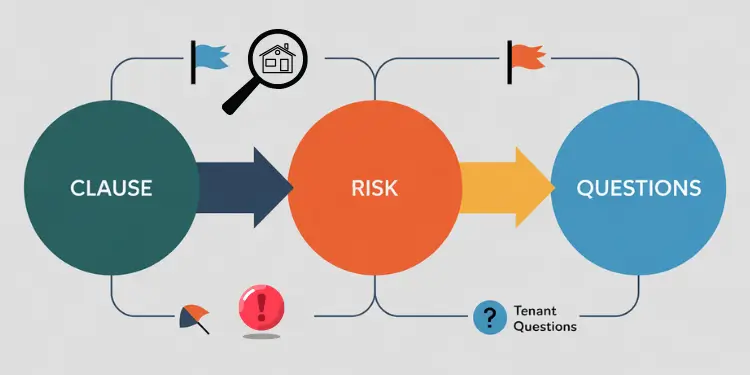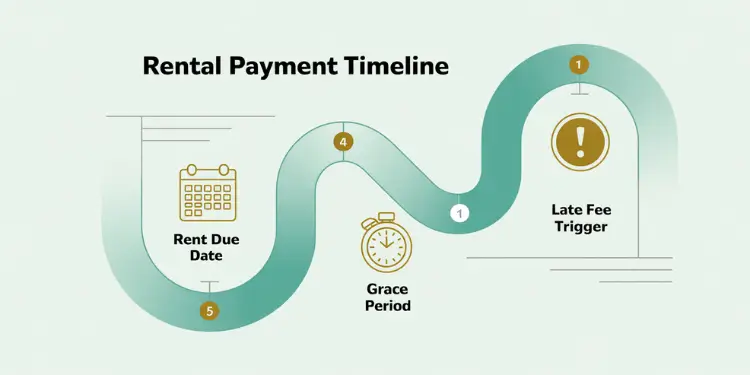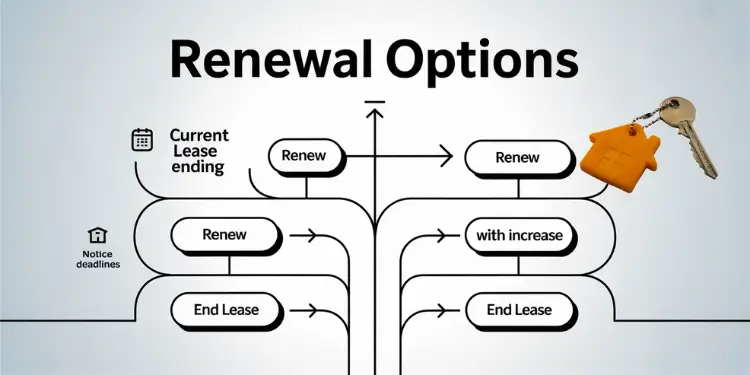Did you know 55% of Americans who rent never read their rental agreement before signing? This mistake costs renters thousands in fees and legal problems every year.
“The fine print in your housing contract determines your rights more than any handshake promise ever will,” I’ve told many clients. After nine years helping Ogden residents, I’ve seen many avoidable eviction threats.
Most property managers hope you’ll skip over important details. They might rush you to sign, saying “it’s just standard language.” But, these documents can either protect or harm you.
Just 30 minutes to review important clauses can save you a lot of stress and money. Many provisions landlords include aren’t even legal. Yet, tenants often agree because they don’t know any better.
Reviewing a rental agreement in detail is essential to safeguard tenant rights and avoid unexpected liabilities. Key clause categories include occupancy terms (defining authorized residents and guest policies), payment terms (rent amount, due dates, acceptable methods, and late‐fee structures), property use restrictions (noise limits, alterations, smoking rules), maintenance and repair responsibilities (upkeep procedures and emergency contacts), and landlord entry provisions (notice requirements and permitted entry reasons). Allocating at least 30 minutes to identify ambiguous or unenforceable clauses—such as unreasonable late fees, automatic renewal triggers, or overly broad “nuisance” definitions—can prevent costly disputes and legal exposure.
Effective lease review involves verifying that all parties and the property description are accurately documented, confirming financial obligations with precise figures and timelines, and ensuring clear start, end, and renewal terms. Tenants should document move-in conditions, maintain records of repair requests, and set calendar alerts for notice deadlines and rent due dates. Understanding security deposit limits, termination rights (including early exit conditions for military service or habitability issues), and subletting rules further empowers tenants to negotiate balanced terms and enforce local housing laws. Keeping signed copies of the complete lease package, including attachments and addenda, provides the foundation for asserting one’s rights throughout the tenancy.
Before you sign, learn what should and shouldn’t be in your written lease.
- Never sign a housing contract without reading it completely
- Some clauses in rental documents may be unenforceable despite appearing official
- Understanding your agreement terms is your first line of defense against unfair practices
- Always request and keep a copy of your signed paperwork
Reviewing a lease thoroughly requires at least 30 minutes and, when needed, consultation with a tenant clinic or legal professional to spot problematic clauses.Ref.: “Tips for Reviewing a Lease Agreement Before Signing. (2024). MyLawDictionary.” [!]
Key standard lease clause categories
Before you sign a rental agreement, it’s key to know the main lease clause categories. I’ve worked at tenant clinics for nine years. I’ve seen thousands of leases. Most have the same basic parts.

Every lease has key parts that define the landlord-tenant relationship. These parts fit together like a puzzle. If one piece is missing, it might mean trouble.
Lease templates have these parts, but the words can change a lot. Don’t just look for familiar words. Ask specific questions to protect your rights.
Many tenants only look at the rent. But important clauses can cause big problems later. Knowing these parts can help you avoid trouble.
| Clause Category | What It Covers | Red Flags to Watch For | Questions to Ask |
|---|---|---|---|
| Occupancy Terms | Who can live in the unit, guest policies, maximum occupants | Vague visitor restrictions, unreasonable occupancy limits | Can my partner stay over? Can family visit for extended periods? |
| Payment Terms | Rent amount, due dates, acceptable payment methods, late fees | Excessive late fees, cash-only requirements | Is there a grace period? What happens if rent is late? |
| Property Use | Permitted activities, noise restrictions, alterations, smoking policy | Overly restrictive use terms, vague “nuisance” clauses | Can I hang pictures? Host gatherings? Work from home? |
| Maintenance & Repairs | Responsibility for upkeep, repair procedures, emergency contacts | Tenant responsible for structural repairs, no emergency contact | Who fixes appliances? How quickly must repairs be completed? |
| Entry & Privacy | Notice requirements for landlord access, emergency entry terms | No notice requirement, unlimited access provisions | How much notice will I receive before inspections? |
It’s important to know the difference between standard and custom clauses. Standard clauses are legal but seem simple. Custom clauses are specific to the property or landlord’s needs. They need careful checking.

When you look at a lease, use this checklist to see if it’s complete:
- Are all parties clearly identified with legal names and contact information?
- Is the property described in detail, including address and any included amenities?
- Are all financial obligations clearly outlined with specific amounts and due dates?
- Does the lease specify start and end dates with renewal options?
- Are maintenance responsibilities clearly divided between landlord and tenant?
Digital lease platforms make agreements more standard. But they can also add new issues. These issues might be in extra agreements that aren’t part of the main lease.
Always read the entire lease, including any attachments or referenced documents. A small clause can change your rights and duties a lot. I’ve seen tenants miss important parts until it’s too late.
Lease clauses should help both sides. If one side seems to get all the benefits, it might not be fair. A good lease balances both sides’ interests and follows local laws.
“Read More: Check lease for illegal clauses using this practical tenant checklist“
Rent payment schedules late fee penalties
Rent payment clauses are very important. They tell you when to pay and what happens if you’re late. I’ve seen many tenants get surprised by late fees they didn’t understand.
Your lease should say when rent is due. It should also say how much rent costs and how to pay. Remember, getting a receipt is what matters, not just sending the payment.
Late fees can vary a lot by state. Some states say you can’t charge more than 5% of the rent. But, in some places, you can’t charge a late fee until rent is 3-5 days late.
Know your state’s rent-due grace period—Delaware, for example, requires a minimum five-day grace period before late fees apply.Ref.: “Maximum Late Fees by State: A Landlord’s Guide. (2025). Azibo.” [!]
Grace Period and Legal Fee Caps
Most states give you a few days to pay rent before charging late fees. This is called a grace period. But, your lease must say this to protect you.

I’ve helped many tenants who were charged too much for late fees. Below is a table showing the maximum late fees in some states:
| State | Maximum Late Fee | Required Grace Period | Special Provisions |
|---|---|---|---|
| California | Reasonable amount (typically 5%) | No statutory requirement | Must be specified in lease |
| New York | $50 or 5% (whichever is less) | 5 days | Cannot be classified as “additional rent” |
| Texas | 12% of monthly rent | 2 days | Must be reasonable and in writing |
| Florida | No statutory limit | 3 days (for eviction notices) | Must be specified in lease |
Be careful of “discount” clauses that are really late fees. For example, a $50 discount for paying on time can turn into a $50 penalty if you’re late. Courts have ruled against these tricks.
Watch out for clauses that make late fees “additional rent.” This can lead to eviction. But, in many places, this is not allowed.
Automatic Payment Method Incentives and Risks
Landlords often offer discounts for automatic payments. But, autopay comes with risks. You could face bank overdraft fees and late fees from your landlord.
Another risk is payment timing. Make sure your lease says when payments can be taken. Some landlords take money at midnight, while others wait until business hours.
If you use autopay, keep these tips in mind:
- Request email confirmations for every payment processed
- Take screenshots of completed transactions
- Maintain a separate record of all payments independent of the landlord’s system
- Ensure your lease includes a procedure for stopping automatic payments if disputes arise
Remember, you’re responsible for paying rent on time, even if autopay fails. I’ve helped many tenants who were evicted because autopay didn’t work.
When looking at payment terms, know what counts as “receipt.” Some leases only count payment when processed, not when sent. This can affect whether you’re late or not.
Always get written confirmation of any verbal agreements about payment arrangements. A text message saying “That’s fine” isn’t enough protection if your landlord later claims your payment was late.
Before signing, set a calendar alert 3 days before rent is due. This simple step has saved my clients thousands in late fees.
“Learn About: Spot hidden lease traps early to avoid unexpected housing costs later“
Renewal termination conditions and notice periods
When I look at rental agreements, the renewal and termination parts are often tricky. These parts affect how free you are to move, your money, and your home safety. Yet, many renters skip over them until it’s too late.
Leases can end in different ways. Fixed-term leases last for 12 months with clear end rules. Month-to-month leases are more flexible but need careful notice.
Watch out for “automatic renewal” clauses. They can extend your lease without you knowing. I’ve seen tenants stuck in unwanted year-long leases because they missed a 60-day notice.
Lease Extension Options and Rent Increases
Leases usually offer three choices when they end: renew, renew with higher rent, or end. Renewal starts 60-90 days before the lease ends. This time can change based on the landlord and where you live.
If your lease auto-renews, mark the notice deadline. Missing it can mean another year at a possibly higher rent. In my workshops, I tell tenants to set two reminders: 30 days before and on the deadline.
In places with rent control, your lease might talk about rent hikes. These rules vary a lot, like in New York versus San Francisco or Los Angeles.

Here’s a letter you can use to talk about renewal terms:
Dear [Landlord Name],
I’m writing about renewing my lease at [Address] which ends on [Date]. I’ve been a good tenant, keeping the place nice and paying on time. Given the market and my record, I’d like to renew with [no increase/a small increase of X%] instead of the [proposed increase].
I look forward to discussing this and keeping our good relationship.
Sincerely,
[Your Name]
Early Termination Rights and Penalty Calculations
Life can change and you might need to leave early. Your lease should say how and what it costs to end early. Penalties usually include losing your deposit, paying rent until someone else moves in, and early fees.
But, there are times when you can leave without penalty:
- Military deployment: The Servicemembers Civil Relief Act lets active duty military break leases with orders.
- Domestic violence situations: Most states let survivors end leases early.
- Uninhabitable conditions: If your landlord doesn’t fix serious problems, you might not have to stay.
- Landlord harassment or privacy violations: Repeated problems can let you leave.
When figuring out early termination costs, think about these things:
| Cost Component | Typical Range | Negotiation Possible | Documents Needed |
|---|---|---|---|
| Early Termination Fee | 1-2 months’ rent | Medium | Agreement for lower fee |
| Rent Until Re-rental | Varies by market | High | Proof of landlord’s efforts |
| Security Deposit | Partial to full loss | Medium | Move-out report |
| Advertising Costs | $50-$500 | Low | Receipts for costs |
| Cleaning/Turnover | $100-$500 | Medium | Photos of before and after |
To cut costs, try to find a new tenant yourself. Many landlords will lower penalties if you show them a good candidate ready to move in right away.
Subletting Assignments and Roommate Replacements
Your lease might have rules about subletting and assignment. These are different and affect your liability.
Most leases don’t let you sublet or assign without permission. This protects landlords but can be tricky when things change. I’ve seen tenants face problems when they change roommates without the right paperwork.
Here’s how to replace a roommate safely:
- Check your lease for rules on replacing roommates
- Write to your landlord about the leaving roommate
- Have the new roommate apply
- Get a lease change document
- Transfer the security deposit
Subletting and assignment have big differences. With subletting, you’re responsible if the subtenant damages the place or doesn’t pay rent. Assignment usually means the new tenant takes over, but some leases might keep you responsible.
Always get written permission before letting someone else live in your place. Verbal okay’s are hard to prove if there’s a problem later. I’ve helped many tenants who got evicted because they trusted a verbal agreement from a property manager.
Keep all records of lease changes and notices. Never rely on verbal agreements when changing your lease. Your money and home safety depend on it.
Security deposit deductions and refund timelines
Before you sign a lease, check the security deposit clause. It affects your money when you move out. In nine years at Ogden legal clinics, I’ve seen many disputes over security deposits.
Your lease must say how much the deposit is, where it’s kept, if it earns interest, and when you get it back. State laws control these rules, and landlords face big penalties if they break them.
Disputes often happen over what’s normal wear and tear versus damage. Landlords can’t take for normal wear and tear. They can only take for real damage, unpaid rent, or extra cleaning costs.
Normal wear and tear includes faded paint, small nail holes, minor scuffs on floors, and light carpet wear in traffic areas. Damage includes large holes in walls, broken fixtures, pet stains, and unauthorized paint colors.
Documentation is key. Do a full inspection with your landlord before moving in. Take photos and videos of every room, noting any damage. Some states require a move-in checklist, but make your own and have your landlord sign it.
Most states say landlords must return deposits in 14-30 days after you move out. For example, Wisconsin security deposit laws require a 21-day return. If your landlord takes deductions, they must explain each one in detail.
Statutory Maximum Deduction Percentages Explained
State laws limit how much landlords can keep as a security deposit. These limits are usually one to two months’ rent. Some places let landlords take more for furnished units or pets. If your lease tries to change these limits, it’s not allowed.
| State | Maximum Deposit Limit | Return Deadline | Interest Required |
|---|---|---|---|
| California | 2 months’ rent (unfurnished) | 21 days | No |
| New York | 1 month’s rent | 14 days | Yes |
| Texas | No statutory limit | 30 days | No |
| Florida | No statutory limit | 15-60 days | Yes, if held in interest-bearing account |
If your landlord keeps your deposit unfairly, you can sue. In many places, you can get two or three times the amount back, plus lawyer fees. I’ve helped many tenants get this money back when landlords broke the law.
If your landlord doesn’t return your deposit on time, send a formal letter. Your letter should:
- Reference the specific state statute governing security deposits
- Include your move-out date and current contact information
- Specify the exact amount owed to you
- Sets a reasonable deadline (typically 7-10 days)
- Mentions your intent to pursue legal action if necessary
Most deposit disputes can be solved in small claims court without a lawyer. The fees are low, and the process is for non-lawyers. Judges in these courts know about security deposit cases and who has to prove what.
Some leases might try to waive your rights to your deposit. But most security deposit laws are for protecting tenants, so you can’t waive them. Make sure your lease doesn’t try to make you wait longer than the law says to get your deposit back.
By knowing the rules and keeping good records, you can protect your deposit. This way, you’ll get it back quickly when you move out.
“Read More: Surrender of premises clause outlines your move out duties clearly“
Maintenance duties and repair accountability
Maintenance duties in the lease are very important. They can affect your living space and money. Many disputes come from not knowing who does what repairs.
Most states say landlords must keep homes safe and healthy. This rule is true even if the lease says something else. Courts usually side with tenants needing safe homes.
Your lease tells you who does what maintenance. But, state laws also have rules. Look closely at your lease to see who does what.

Routine Maintenance Tenant Must Perform
Landlords handle big things like systems and structure. But, tenants do simple upkeep. This includes:
- Changing light bulbs and smoke detector batteries
- Replacing HVAC filters every 1-3 months
- Keeping drains clear of hair and debris
- Proper garbage disposal and pest prevention
- Lawn care (if specified in the lease)
Watch out for leases that ask you to do too much. I helped a tenant who had to fix the furnace and water heater. But, the landlord wanted them to pay $900 for a new water heater.
Make a checklist for maintenance based on your lease. Keep photos and receipts of your work. This helps when you move out.
Always read the fine print about maintenance duties. If it seems unfair, talk about it before signing or get help from a tenant rights group.
Reporting Timelines for Urgent Repairs
How and when you report repairs is key. Your lease tells you how to do this. Following these steps helps protect your rights.
Most leases want you to write to the landlord about repairs. Verbal notices are not enough. Send repair requests through:
- Email (with delivery and read receipts)
- Certified mail (for serious issues)
- The landlord’s designated reporting system
- Text message (as supplementary documentation)
For emergencies like gas leaks or heating failures, tell the landlord right away. Say it’s an emergency and needs quick action.
| Repair Type | Reporting Timeline | Documentation Needed | Follow-up Period |
|---|---|---|---|
| Emergency (gas leak, flooding) | Immediately | Photos, videos, call logs | 24-48 hours |
| Essential Services (heat, water) | Within 24 hours | Written notice, photos | 3-5 days |
| Standard Repairs | Within 48 hours | Written notice | 7-14 days |
| Cosmetic Issues | Within 7 days | Written notice | 30 days |
If repairs are not fixed on time, you might have legal options. These could be fixing the problem yourself, not paying rent, or ending the lease. But, you need to show you followed the lease rules.
Be careful of lease rules that are too strict. For example, needing to report in person might not be fair. Both landlords and tenants should have clear rules.
Keep a record of repair issues. Include:
- Date you found the problem
- Date and how you reported it
- Photos or videos of the problem
- Names of maintenance people who checked it
- Copies of all talks with your landlord
This record is very important if you or the landlord needs to go to court. I’ve seen tenants win cases because they had good records.
Either you or the landlord might be blamed for not reporting or fixing problems. If you wait too long to report a leak and it causes damage, you might have to pay for it. Even if fixing the leak was the landlord’s job.
“Read Also: Identify unfair lease clauses early to protect future tenant rights“
Landlord access privacy and inspection limits
I’ve seen many lease clauses that let landlords enter anytime. But, these rules are often not enforceable. Most states say landlords must give 24-48 hours notice for routine visits.
Your privacy doesn’t end when you sign the lease. The landlord-tenant relationship needs balance. Check your state laws for rules on when and why landlords can enter.
Keep a record of any unwanted visits. You can use a doorbell camera or ask neighbors to text you. This proof is key if you need to show a lease violation.
Be careful of clauses that skip notice rules or let landlords inspect without warning. Even if these parts are bad, the rest of the lease might be okay.
Landlords can enter without notice in real emergencies like fires or gas leaks. But, wanting to show the unit is not an emergency.
If your landlord keeps entering without notice, send a certified letter about your state’s laws. If the problem keeps happening, get legal help. Courts take privacy issues seriously, even in shared spaces.












